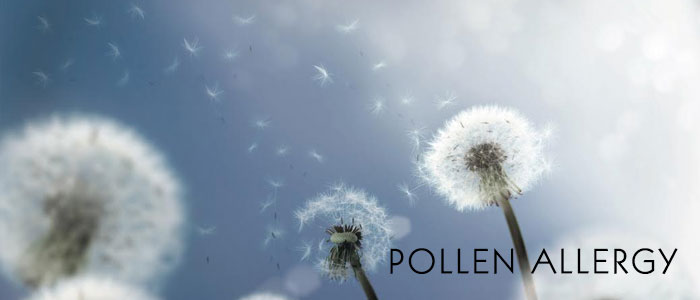
Pollen from grasses, weeds or trees can trigger symptoms of allergic rhinitis (hay fever) and asthma. Pollen seasons can last for several months and exposure is difficult to avoid. However, there are simple ways to prevent or reduce symptoms.
What is pollen?
The word pollen is derived from the Greek word meaning 'fine flour'. The role of the pollen grain is to fertilize the female flower to reproduce plant species.
• Some plants (such as flowering plants, including wattle) produce small amounts of pollen which are distributed by birds and bees from one plant to another.The correct name for hay fever is seasonal allergic rhinitis. Allergic rhinitis symptoms are caused by the body's immune response to inhaled pollen, resulting in chronic inflammation of the eyes and nasal passages. Symptoms include runny nose, itching, nasal congestion, irritable and watery red eyes, and itchy ears, throat and palate. Extreme fatigue may also occur and result in considerable impairment of the quality of life.
• Other plants (such as pasture grasses and weeds) rely on the wind to disperse their pollen. These pollen are produced in vast quantities, blow long distances and cause allergies in people, even if they live a long way from the source.
• Allergic rhinitis predisposes people to more frequent sinus infectionsPollen can also trigger asthma
• People with allergic rhinitis can get tired and run down due to poor quality sleep
• Severe allergic rhinitis impairs learning and performance in children, results in more frequent absenteeism in adults and reduced productivity
• Allergic rhinitis makes asthma more difficult to control
